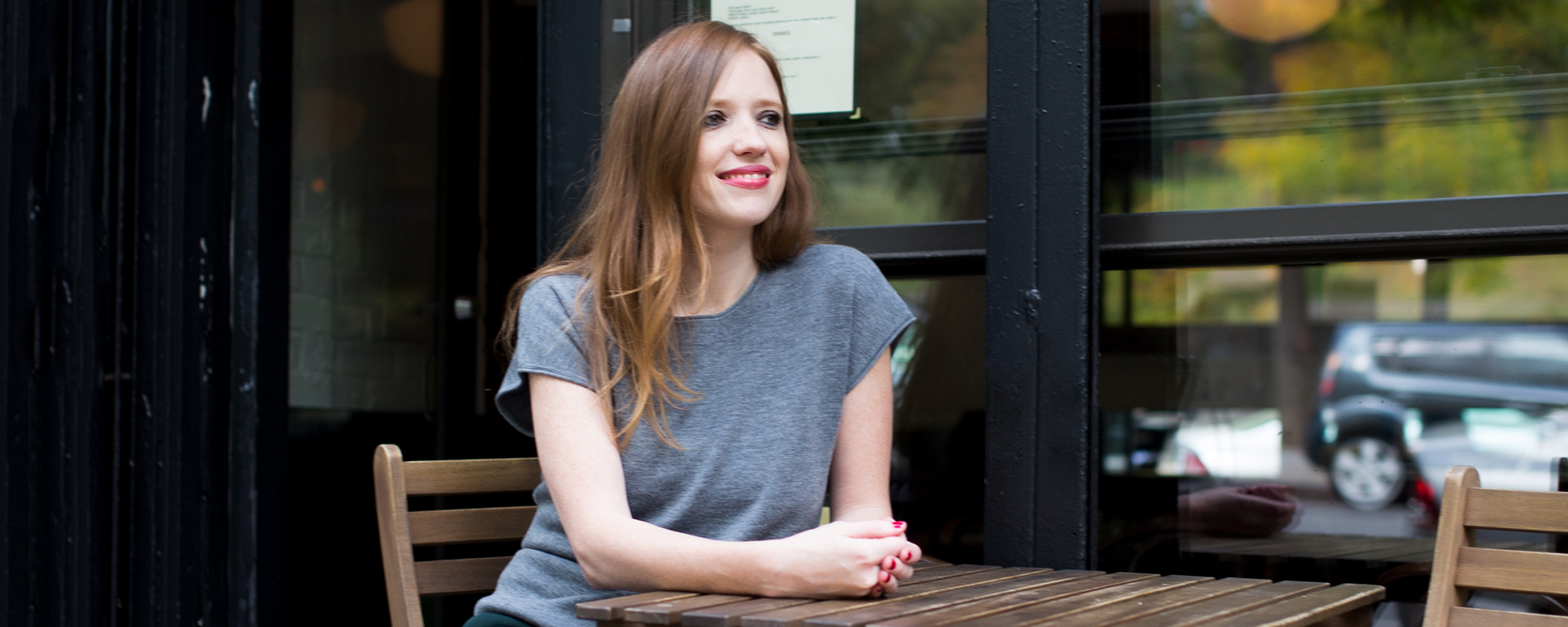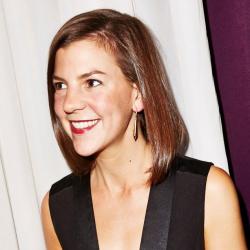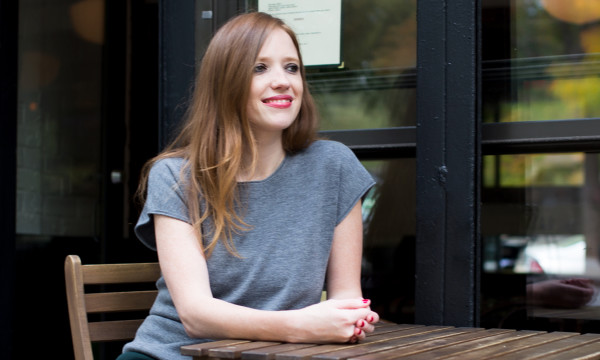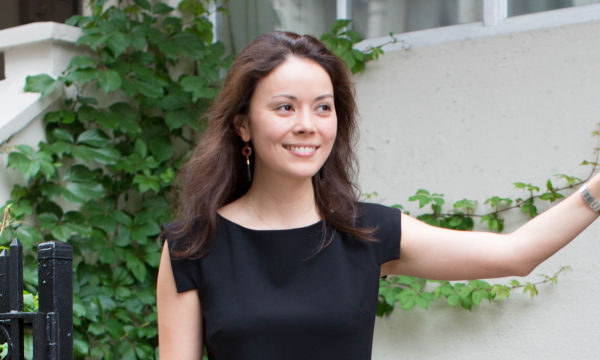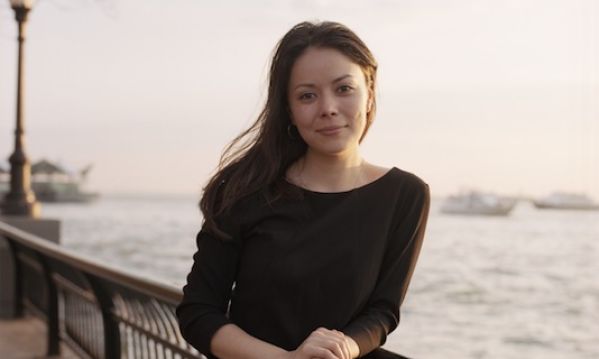Maven CEO Katherine Ryder Is Revolutionizing Medical Care for Woman
October 21, 2016 | Filed in: Woman of the Week
Five years ago, Katherine Ryder started her first business, a side hustle in addition to her job as a Singapore-based reporter for The Economist. “It was a disaster,” she says of the short-lived venture, a travel company. “I had no idea what I was doing.” However, the experience laid the groundwork for her next (and much more successful) brainchild: Maven, a digital platform for women that provides direct access to healthcare support online. Now two and a half years old, Maven Clinic works with over 700 providers across the U.S., and offers specialty features for college students and expecting mothers—a timely addition, as Ryder herself gave birth to her first child, Theo, three months ago. Last week, we visited her Brooklyn apartment to talk maternity healthcare, awkward career changes, and pacifier freak-outs.
I BEGAN my career as a journalist, first at The New Yorker and then at The Economist. To get your stories published, you have to be self-starting and persistent, and those qualities definitely translated to entrepreneurship. I also spent a really fascinating year helping Hank Paulson with his memoir, in 2009. I got that job because I was trying to get hired at the Wall Street Journal, but the editor recommended me to Hank’s writer instead. Hank was raring to get started, and his writer was like, “If you can read this book on J.P. Morgan’s takeover of Bear Stearns in a day, then you have the job.” I was like, “Okay, I’ll go buy some Red Bull!”
MY DAD IS AN ENTREPRENEUR, so I grew up thinking about starting a business. I co-founded my first company in Singapore, while I was still working for The Economist, and it was a total failure. It was an online travel business, geared towards group travel for the Chinese market. I still think the idea was great, but we were pretty clueless when it came to operations. My dad was like, “I know you don’t like to listen to me, but if I can give you one piece of advice: Go get other experience before starting a business.” So that was my next step.
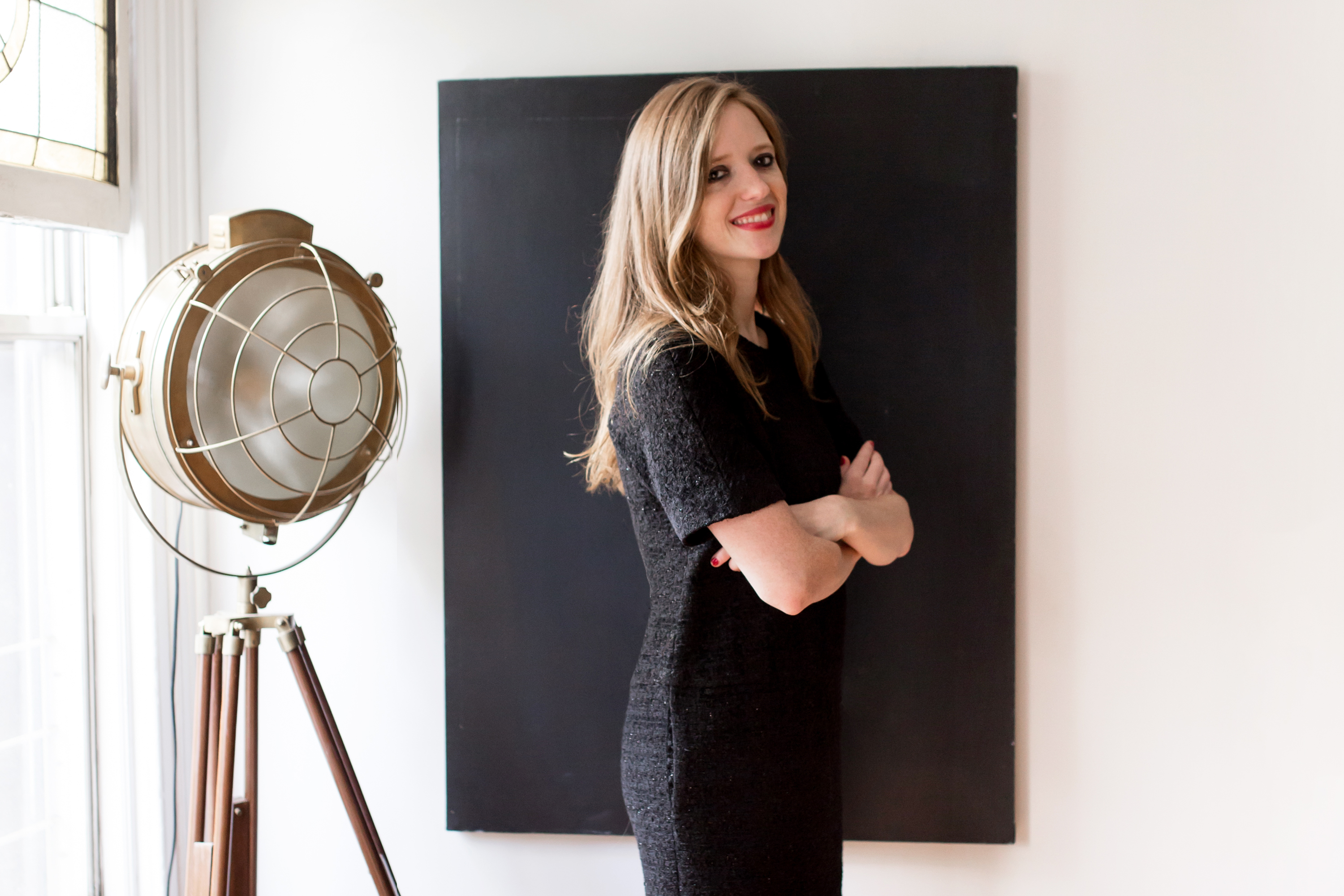
Katherine wears the Silvia dress in onyx tweed.
TRANSITIONING TO VENTURE CAPITAL was really tough. I knew I wanted to change careers, but it was sort of a nightmare scenario. My husband got a job in London, so we moved there, and I didn’t have a network at all. I had maybe 120 meetings. I was very scared that I was facing the beginning of the end of my career. Then I met a partner at a venture capital firm, and he was looking for an associate, and he had a soft spot for journalists, so he hired me in two days. It was partly luck, but also a game of numbers—I worked really hard to meet a lot of people, and it took time.
I GOT THE IDEA for Maven when I was covering digital health investments and tech at the venture capital firm. I learned that healthcare is a primarily female market, very similar to retail; women drive most of the decision making, and they control most of the spend. Still, the healthcare products and services for women seemed stuck in the 1950s, even though it’s the largest industry in the United States. I was also seeing a real need for improvement firsthand, because a lot of my friends were starting to have kids, and their needs weren’t being met in very basic areas. That was my the first “Aha!” moment.
MAVEN CONNECTS patients and providers over video or private message. Women can get prescriptions—we help provide a lot of scripts for birth control and UTIs—or they can get support on whatever specific issue they’re going through, whether it’s breastfeeding or mental health. We offer weight loss support with our nutritionists and injury support with our physical therapists. We’re basically a one-stop shop: You don’t have to go to all these different places to get digital care. We now have providers to cover anything a healthy woman would need over her journey from college to menopause.

Katherine (with Theo, three months) in the Arbus sweater and the Harlem skirt in deep forest.
I BELIEVE that healthcare is about people. It’s the relationship you have with your providers, the information you get from them, and hopefully the trust you build with them. Once you find a good provider, you want to stick with them, and we help facilitate that. It’s important for many women to have a medical professional whom they feel comfortable talking to and can access easily. Personally, when I was living abroad in my late twenties and early thirties, I didn’t have relationships with any providers, and it was definitely not the type of healthcare I wanted.
AS AN ENTREPRENEUR, I think you’re naturally drawn to what you understand. But you also need to have passion. Like, I can relate to shoes, and I like shoes, but I don’t have passion for shoes. When it comes to digital health, however, I relate to it and I have passion for it; I’ve dealt with birth control issues, I’ve dealt with other women’s health issues, and I know that it’s an underserved market. I could get really excited about marrying my life to this.
APPROACHING HEALTHCARE as a bit of an outsider has allowed us to innovate a lot. Knowing what I know now, I probably wouldn’t have gone in like a bull in a china shop, but it also meant that we had a fresh take. The industry is complicated and heavily regulated, so before we launched, I dedicated more than a year to making sure we were building good products, getting the right lawyers, and checking all the boxes. We now deliver care nationally over a HIPAA compliant system, so it’s really happening. We’ve also built a number of specific products, such as Maven Campus, which is for college students, and Maven Maternity, which provides support for women from the moment they start trying to get pregnant to when they re-enter the workplace after maternity leave. We’re starting to re-invent the support they can receive.
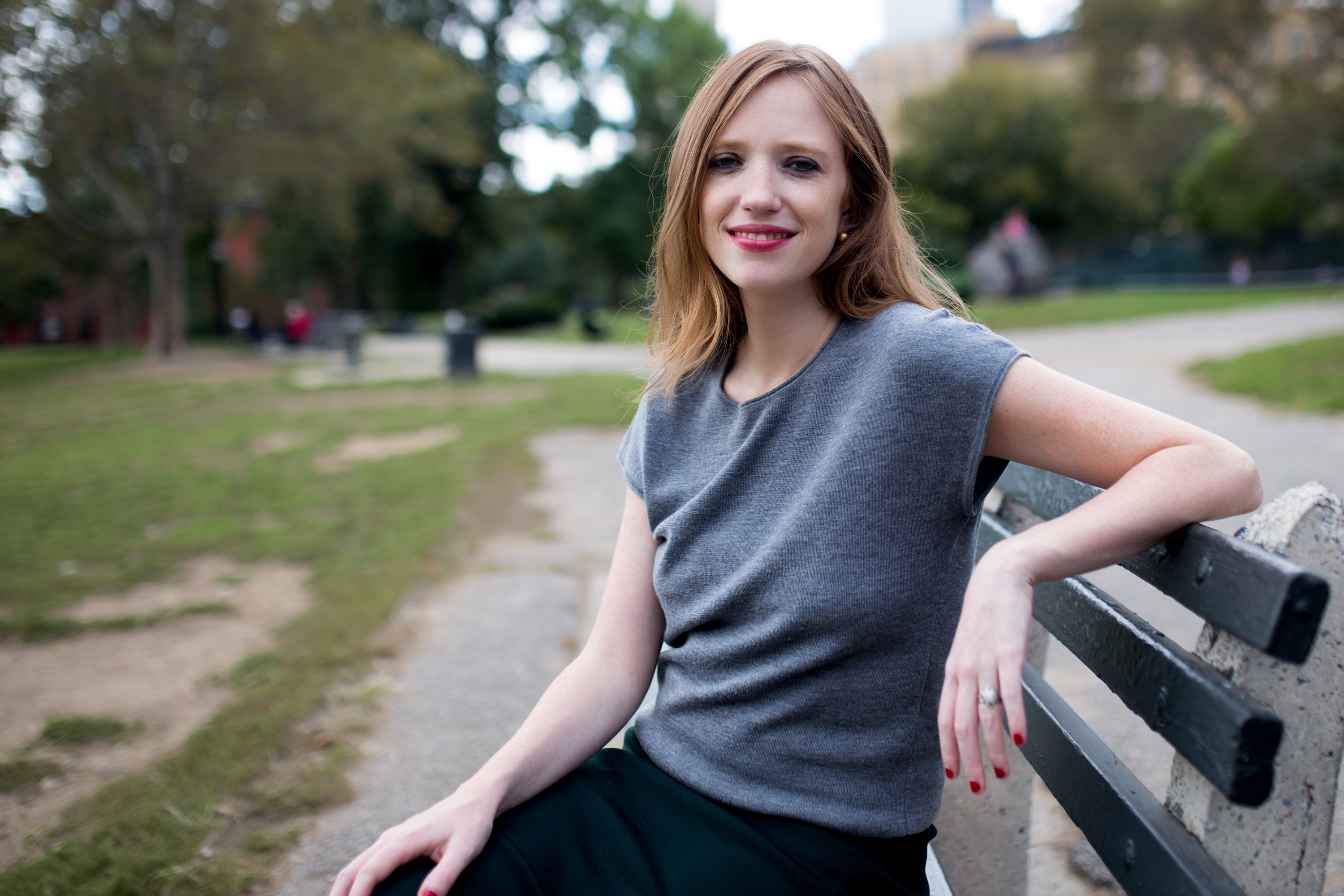
Katherine in the Cady top in heather gray and the Harlem skirt.
I WOULD SAY that I’m a leader-in-training. One of my investors told me that management and leading is an art, and I’ll be bad at it for the first three years. That was great advice, because if you’re humble and understand your own flaws, I believe people will respect you more. The business is in my name, but I’m still just a person.
MY DAD TAUGHT ME that your job as a CEO is to motivate and instruct in a productive way. That’s really hard, and some of my early instincts were not right. If you set a goal of getting 100 meetings for sales opportunities and you only get 98, what do you do?, what do you do? The answer is, cheer them on, and say, “Great job, almost 100, let’s get 110 next time.” I would say to myself, “God, that sucks, I should have gotten to 100.” But that’s not a constructive way to manage or lead.
NOW THAT WE HAVE A BABY, what keeps me from burnout is playing with him, uninterrupted. He’s my zen time. During the week, I try to get home at 6:30pm and be with him for two hours, not online, not checking my phone. And then after he goes to bed I go back online and finish working. I might be spending a little less time on email, but I’m much more focused, and whipping through stuff.
BEING A MOM has made me experience Maven in a new way, and have such a greater appreciation for getting support when you need it. For example, Theo loves his pacifier, and the other day someone told me that pacifiers were bad for babies. So I googled it and completely freaked out. Then I was like, “You know what, I’m just going to talk to a pediatric nurse practitioner on Maven for 10 minutes.” She told me it was totally fine up until age one. I was like, “Great.” And then I could move on instead of worrying.
Photos by Yan Ruan.





